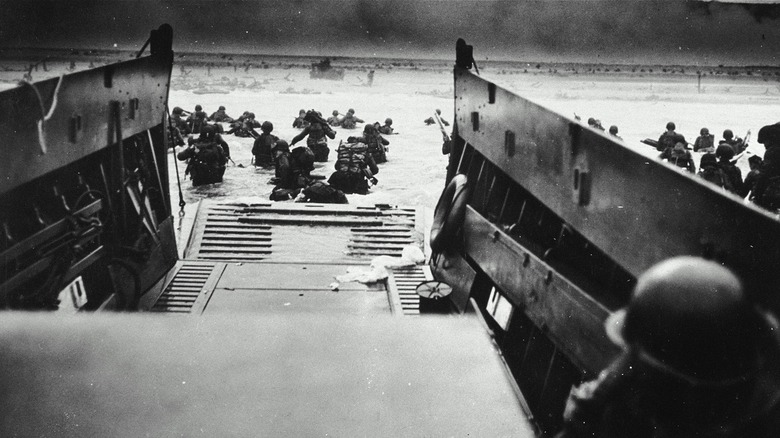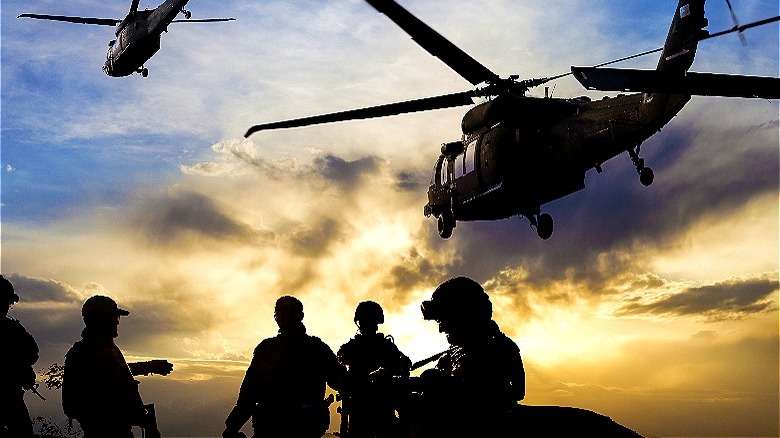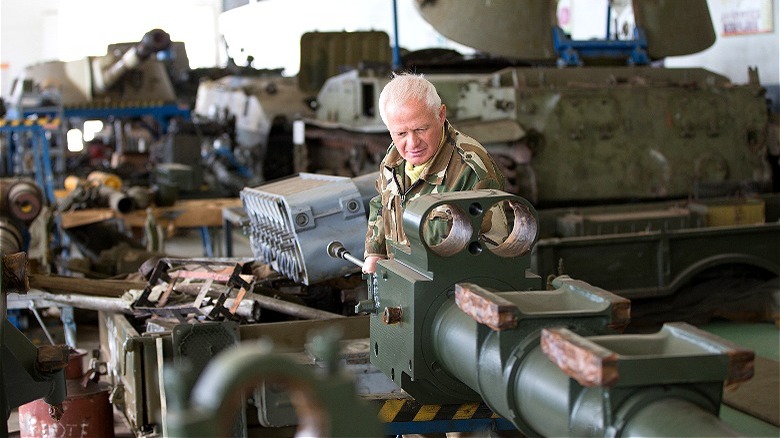How Do Wars Affect The Stock Market?
Wars affect the human experience, naturally, but they also play a role in shifting markets, changing politics, and revolutionizing connections between far-flung communities. Many people in the United States might be agonizingly watching their TV and frantically devouring news reports to understand how open conflict in Ukraine and the Levant, and tension in the South China Sea (among countless other points of strife) might influence their investments in the stock market. This financial fear can even extend to concerns over bond yields, savings-account interest rates, and perhaps even the real estate market or other commodity valuations.
A tip for anyone investing in stocks as a beginner is that warfare can influence markets in a great many ways. Just as with any sort of global phenomenon, armed conflict plays a role in moving the needle, but precisely how much, and in which direction remains murky. Every embattled landscape creates its own pressures on financial markets, so it can be difficult to pinpoint. However, there are some common themes within these engagements that can help investors draw conclusions about potential movements.
Overall, significant market impact is muted
Perhaps surprisingly, new violent conflicts rarely move the needle all that much in the stock market. Stock price on the whole doesn't experience great turmoil, or a doubling-down effect, that slingshots prices to higher levels when fighting breaks out somewhere in the world. This isn't to say that ripple effects from war can't send markets skyrocketing or tumbling, though.
For example, directly following the Arab-Israeli War of 1973, Saudi Arabia led an OPEC-wide oil embargo against the United States. This sent markets into unknown headwinds and temporarily sank stock-market value. Coinciding with an already embattled market, a bear trading period ensued between the end of 1973 and 1974. Investors saw the same kind of energy squeeze again in 2022 as Russia invaded Ukraine and then drastically cut down natural gas exports to its European trading partners. The goal was to strain European economies and influence Ukrainian support.
The embargo prompted American policymakers to severely rethink the way they framed energy policy. Oil is a crucial product for automotive transport, of course, but it's also a critical resource in the industrial world at large. The war itself played little part in the U.S. economy and stock market outlook, but a Saudi response to American support for the Israeli state certainly affected the markets and U.S. monetary and trading policies. Other conflicts have come and gone with little to no impact on American markets, however. The Bosnian Civil War (1992 to 1995), for one, coincided with market conditions that were shaped by "unusually low volatility" and major overall growth, per economists David Laster and Kevin Cole.
Direct involvement can bring added uncertainty
Even though the stock market remains quite untethered to the winds of international conflict, this doesn't mean that it can make its way through wartime unscathed. Warfare brings about a heightened level of uncertainty, and the more intense the conflict, the more likely direct and active engagement becomes. This leads to chaos, significant casualties, and hard times for Americans. Psychologically, warfare brings about a sort of austerity mindset that only increases with the physical, sociological, or emotional proximity to American interests, regardless of whether the economy is experiencing a high-octane run or not.
Perhaps more directly, though, anything that introduces uncertainty into life and the economy has potential to negatively impact the stock market. Vulnerability breeds frenzied action; when investors are spooked they're more likely to engage in a sell-off. With enough volatility brought to the fore, investors can send markets tumbling in the short to medium term. As a point of order, principled investors often focus on these periods of market recalibration to go on buying sprees.
When the market is underperforming, savvy investors have a great opportunity to double down on their positions at cut rates. Over the long term, the stock market has proven to be a worthy adversary of virtually every social and political climate possible, including violent conflict. As an investor, it's often a good idea to trust the market to turn itself around, thus far it always has. (See the best and worst stock predictions in U.S. history.)
Conflict ultimately drives investment
Lastly, it would be a mistake to only focus on only indifferent and negative marketplace aspects of war and conflict. In purely financial terms, armed conflict is often a boon to economic outlooks. Take for instance the war in Ukraine that remains ongoing long into 2024.
The federal government has passed congressional legislation through five targeted aid packages totaling a budget of $175 billion. Roughly $70 billion of this funding has been allocated for weapons, military equipment, and other support products; translated into layman's terms, this means $70 billion spent largely or completely in American factories. When the United States supplies ammunition, tanks, or bulletproof vests, what is really happening is a transfer of existing material to the recipient country and an investment in domestic production geared at replacing the U.S. stockpile.
While some international company stocks may take a tumble and sectors like the tourism industry might retract slightly, manufacturing can often see a bump in productivity during such times of strife, leading to a reduction by up to 25% in stock volatility on the whole, according to the paper "Stock Volatility and the War Puzzle: The Military Demand Channel." Moreover, the stock market has often experienced periods of general growth during war time rather than retraction. This is likely at least partially the result of a mobilized economy that demands greater industrial output and therefore a higher volume of workers.
Also, historically, active conflicts have also seen a growth in military service, leading to more employed Americans in this field as well. All around, military mobilization often leads to positive economic change even as it contributes to death and destruction.



